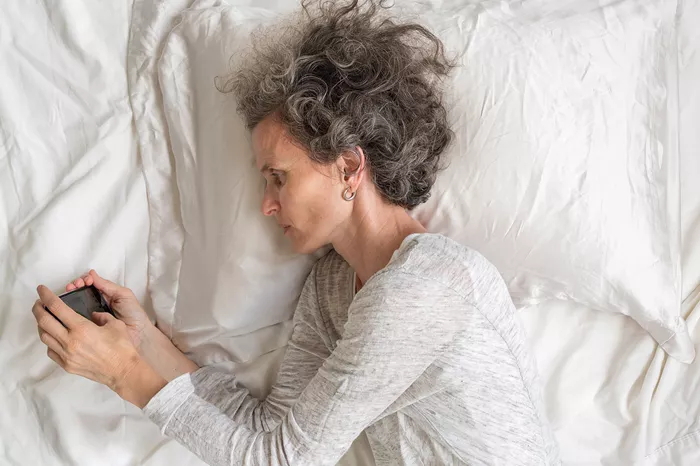A leading national effort to understand and fight Alzheimer’s disease is at risk as a key research center at the University of Washington (UW) faces a sudden freeze in funding. Scientists, doctors, and patients are now bracing for the possible collapse of work that has taken decades to build.
Andrea Gilbert, a 79-year-old retired attorney with Alzheimer’s disease, hoped to leave behind something meaningful. In 2023, she pledged to donate her brain to research after her death, in hopes of helping future generations. But now, the program she supported — and relies on for care — is in danger.
“I’m not taking it with me,” Gilbert said from her hospital bed at Harborview Medical Center, where she was receiving treatment to slow her condition. “I hope it gets used well. But, you know, you can’t guarantee anything.”
The future of Gilbert’s care and donation is uncertain because of sweeping delays in grant approvals from the National Institutes of Health (NIH), widely attributed to decisions made during the Trump administration. Across the country, thousands of research projects are stuck in limbo — even those focused on topics like Alzheimer’s, which are typically non-political and broadly supported.
Since 1985, the NIH has been the main supporter of the UW Alzheimer’s Disease Research Center (ADRC), which houses a brain bank preserving more than 4,000 donated brains. Every year, the center receives over 200 new donations — crucial for understanding how Alzheimer’s affects the brain and for developing new treatments.
But the grant that funds the center expires at the end of April, and the renewal process has slowed dramatically. According to court documents, this is not an isolated case — funding decisions across NIH have nearly come to a standstill.
The research team at UW is deeply concerned. The ADRC has made major contributions to Alzheimer’s science, including helping identify three key genes linked to the disease. Their work also directly benefits current patients, like Gilbert, through experimental treatments and neurological care.
“We’ve gone through a bunch of contingency planning,” said Dr. Thomas Grabowski, Gilbert’s neurologist and the ADRC’s director. “But when the delay goes on for months and months, there’s really no good solution.”
One of the program’s central missions is its brain bank, led by Dr. Dirk Keene, a professor of neuropathology at UW Medicine. Keene says the possible loss of funding would be devastating — not only to science but to the trust patients place in the system.
“I’ll beg, I’ll borrow. I don’t think I’ll steal,” Keene said, “but I’ll do whatever I can to honor the gift these donors are making.”
The freeze on research funding has had ripple effects across U.S. universities. ACLU lawyers argue that the Trump administration targeted research grants dealing with diversity, LGBTQ issues, and gender identity, while also causing broader delays in the grant review process.
Some of the country’s top institutions — including Johns Hopkins and Princeton — have had grants abruptly canceled. Public universities like UW are among the hardest hit, researchers say.
“This is going to lead to a major brain drain in the U.S.,” said Dr. Shelly Sakiyama-Elbert, vice dean of research at UW Medicine. “We’re talking about incredibly talented people who are thinking about leaving science or even leaving the country.”
She added that science is not something that can be restarted overnight. “It’s not just a switch you flip. When people leave the field, they often don’t come back.”
In a statement to NBC News, the NIH said it remains committed to supporting “gold-standard, evidence-based science.” But with many researchers still waiting for decisions on urgently needed grants, hope is starting to fade for some programs.
Back at Harborview, Andrea Gilbert’s situation underscores what’s at stake. As she continues her battle with Alzheimer’s, the program that supports her and thousands of others hangs by a thread.
“I just want to know it will make a difference,” she said softly. “That’s all anyone wants — to know they helped.”
Related topics:
- Ultrasound Technique Shows Promise For Tracking Type 2 Diabetes Progression
- Weight Training May Help Protect Against Dementia, Study Shows
- Study Links Brain and Immune System to Apathy in Cancer Patients


